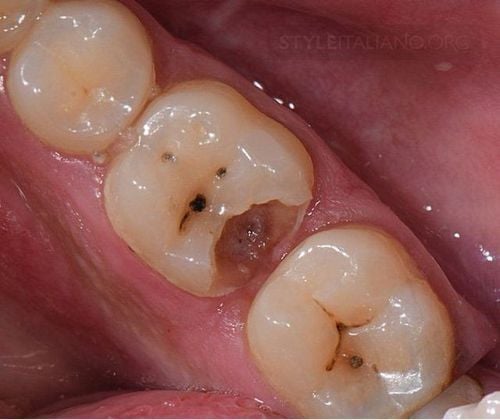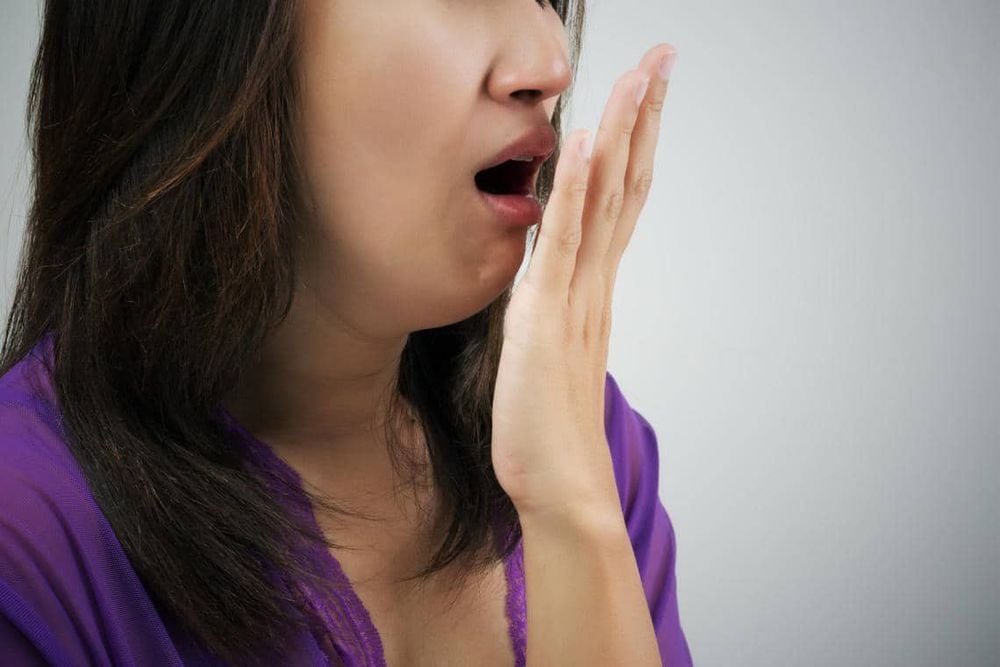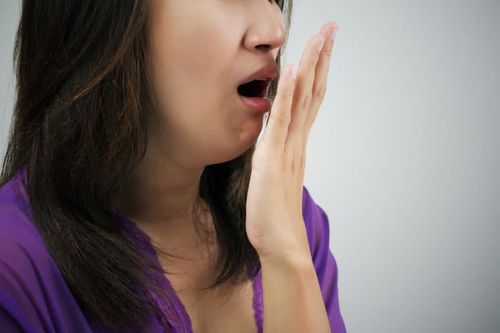This is an automatically translated article.
The article was professionally consulted by BSCK II, Senior Doctor Doan Du Dat - General Internal Medicine Doctor - Department of Medical Examination and Internal Medicine, Vinmec Ha Long International Hospital.Symptoms of severe bad breath have many causes, most commonly in the teeth - gums - tongue in place, then the cause of the ear, nose and throat, some diseases of the digestive tract and respiratory tract are also manifested by bad breath. bad breath).
1. Causes of bad breath despite clean hygiene
Halitosis is a disease when a person's mouth emits bad breath or an unpleasant odor when speaking. The disease can affect anyone and at any age. This is the third most common disease among dental diseases, after tooth decay and periodontitis, about 25% of the population suffers from halitosis with varying degrees.There are many causes of bad breath despite regular cleaning, here are some common causes:
1.1 Dental disease Halitosis is usually caused by the breakdown of proteins by microorganisms Objects in the mouth, produce substances such as hydrogen sulfide, methyl mercaptan, dimethyl sulfide with an unpleasant odor, the cause of bad breath due to:
When food is left in the mouth or between the teeth, decomposed by bacteria, will produces odors. Periodontitis: A condition in which the gums around the teeth become inflamed, swollen, and red due to bacteria. This condition is left untreated for a long time, forming pockets of bacteria between the gums and teeth, causing bad breath. Cavities: There are holes in the teeth, this will create favorable conditions for bacteria to hide, multiply and cause bad odors. Tartar: A condition in which plaque builds up on the roots of teeth, creating a good environment for bacteria to multiply, grow and cause bad breath. Glossitis: A place where food debris is easy to stick and a good environment for bacteria to break down proteins that create odors. Dry mouth: Saliva is responsible for keeping the oral cavity moist, cleaning the mouth, helping to digest food, reducing acidity in the mouth and digesting starch. When the acidity in the mouth is high, bacteria multiply, thereby causing bad breath. Certain other medical conditions such as cancer, liver failure, peptic ulcer disease, intestinal obstruction and other metabolic diseases can cause severe halitosis due to the specific mix of chemicals they produce. .

Sâu răng có thể gây hôi miệng
2. Recognizing signs and consequences of bad breath
The specific odor of the breath can vary depending on the cause of the problem. It is best to ask a family member to rate your bad breath, as it is difficult to assess it on your own. If no one is available, test the smell by exhaling on the palm of your hand and then sniffing.Besides, some signs that often accompany bad breath are feeling sour taste in mouth, dry mouth, white surface of tongue or bleeding gums.
Consequences of bad breath for patients:
Bad breath occurs at all ages, the severity depends on the cause of the disease. Halitosis has a very serious impact on the psychology of the sufferer. The survey shows that: Most people with bad breath share the same feeling of shyness in contact with others and always feel insecure about themselves while communicating with their partners. Due to knowing that the breath through his mouth is smelly, he is often very embarrassed when talking to those around him. Even, there are people who, for fear of others discovering their bad smell, have minimized daily communication. This seriously affects the mental life, as well as the social relationships of the patient. Consequences of bad breath for people around:
When in contact with people with bad breath, the bad smell will make people uncomfortable in communication, and can cause reactions such as avoidance, alienation . For people with severe bad breath, even people in the family, in the classroom, in the working group also find it very difficult to communicate daily with each other, even alienated. Bad breath will to some extent affect family happiness. If a husband or wife has bad breath, the partner will be very afraid to contact and get close, if left for a long time, it will have a significant impact on the couple's relationship. If single people have bad breath, it will limit their ability to find a other half, so it is more difficult to get married than other people due to fear of contact or non-contact partners. The most dangerous of halitosis will be shunned by everyone so that the patient gradually closes himself, becoming an autistic person. Because they always live in fear and anxiety, there are many cases where there is no way to find a cure, feeling that life is stuck with no way out, which can lead to very bad consequences, which is suicide.

Hôi miệng có thể gây khó chịu cho mọi người xung quanh
3. What to do to prevent bad breath?
Prevention is to drink lots of water. If you have bad breath, you need to see a doctor and treat it according to the cause if it is caused by an illness, or seek advice in cases of lifestyle, or problems related to bad breath. Clean your teeth thoroughly and properly after each meal, before going to bed and waking up early in the morning, you can use dental floss to remove all the food between the teeth, scrape your tongue clean every time you brush your teeth. , quit smoking. Limit the consumption of spices with strong odors such as garlic and onions. Need to quit smoking, pipe tobacco... People who wear dentures, braces need to clean this tool a few times a week to clean and not allow microorganisms to reside, causing bad breath. Chewing gum, gargling with salt water regularly are also effective prevention methods, some commercially available mouthwashes also have certain effects.Please dial HOTLINE for more information or register for an appointment HERE. Download MyVinmec app to make appointments faster and to manage your bookings easily.













